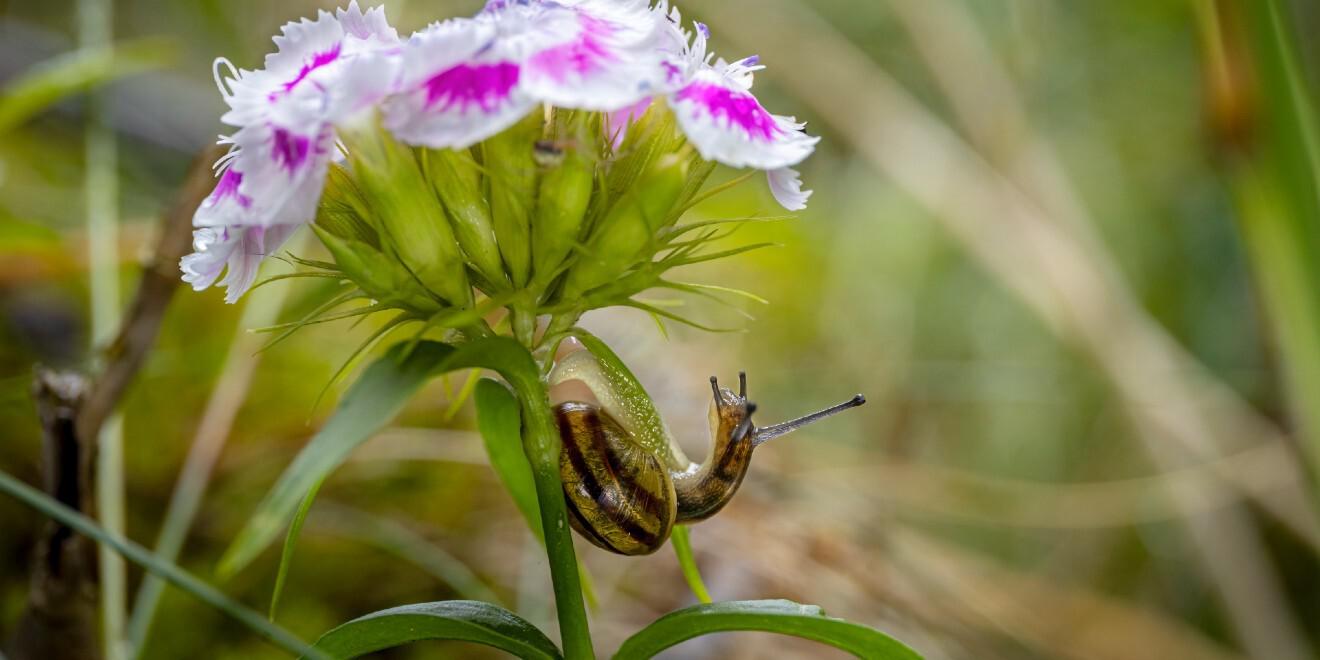Are Snails and Slugs Good for Your Garden?
Posted by Mosquito Squad
August 25, 2025

Author: Emma Grace Crumbley, Entomologist
When tending to your garden, it’s not uncommon to finds snails or slugs among the foliage. Snails and slugs both prefer shady, cool, moist spaces with ample vegetation. Though you might find evidence of them munching on your plants, these gastropods are not always garden pests and can actually provide some beneficial services to your outdoor spaces. Too many snails and slugs however, especially species that target garden plants, can lead to slim picking in your plot.
Benefits of Snails and Slugs
Keeping these slimy, sometimes shelled critters around your garden plants can actually help them grow. Snails and slugs can help your garden by decomposing dead or dying plant and animal material and eating fungi and detritus in the garden. Breaking down organic material and feeding on molds and algae helps cycle nutrients back to the soil in your garden, creating a rich environment for plants to continue growing in. Snail and slugs also support your backyard’s biodiversity by serving as food sources for other animals. Ground beetles, fireflies, frogs, lizards, and birds all feed on snails and slugs as a part of their regular diet.
Slugs and Snails as Garden Pests
Though snails and slugs are omnivores, they are best known for eating garden plants. You’ll know your plants are being attacked by snails and slugs if you see irregular and uneven holes in the center of leaves, flowers, and along stems. Often times this feeding goes unnoticed as slugs and snails are nocturnal and do most of their munching at night.
Thankfully there are a few ways you can prevent plant damage in your garden without chemical interventions:
- Tend to your garden regularly. Snails and slugs usually target undisturbed areas with plenty of moisture. Working in your garden frequently can help you spot pest problems quickly and discourage snails and slugs from hanging around.
- Reduce irrigation. Snails and slugs are soft-bodied and are very susceptible to drying out during the day. By reducing the amount of water you give your plants, or removing excess leaf litter and mulch that retains moisture, you can make your garden less attractive to these gastropods.
- Create snail/slug traps. Snails and slugs need moist, secure areas to hang out in during the day. Creating these environments by putting out a piece of cardboard on the ground or propping unused garden pots against the side of your home can lure snails and slugs into these harborage areas and make them easy to pick up and physically remove them from you yard.
Rosy Wolf Snails
In researching control methods for snail problems, you might encounter information on rosy wolf snails (Euglandina rosea). Rosy wolf snails are large, predacious snails that will feed on the eggs and bodies of other snails. Though some gardens will introduce rosy wolf snails to their gardens to feed on the snails and slugs destroying their plants, entomologists and conservationists strongly discourage this form of biological control. Though native to the southern US, the rosy wolf snail’s aggressive predation removes other snail species from your backyard’s biodiversity, which can have negative effects on the environmental health of your outdoor spaces.
If you have questions about rosy wolf snails in your region, reach out to your local extension office for more information.
